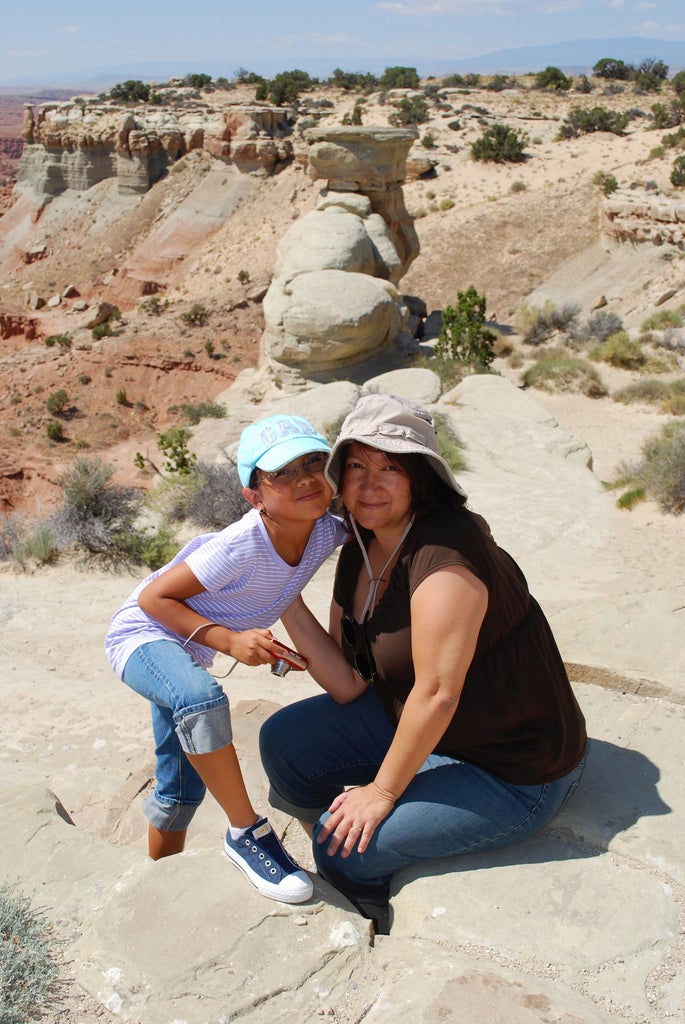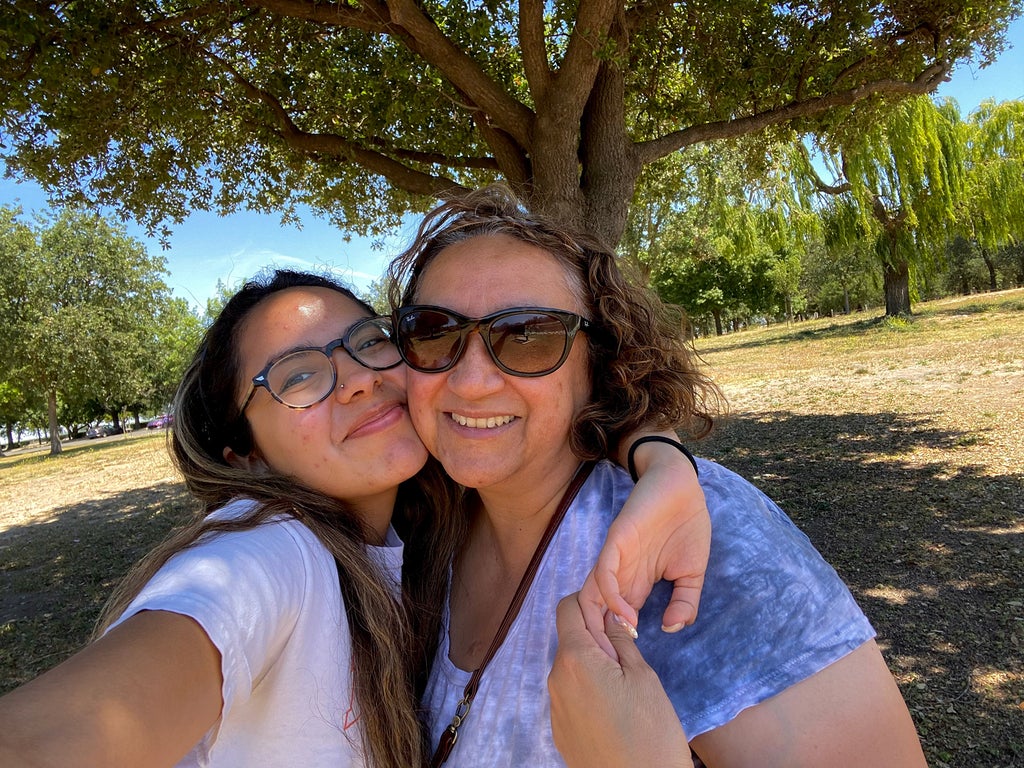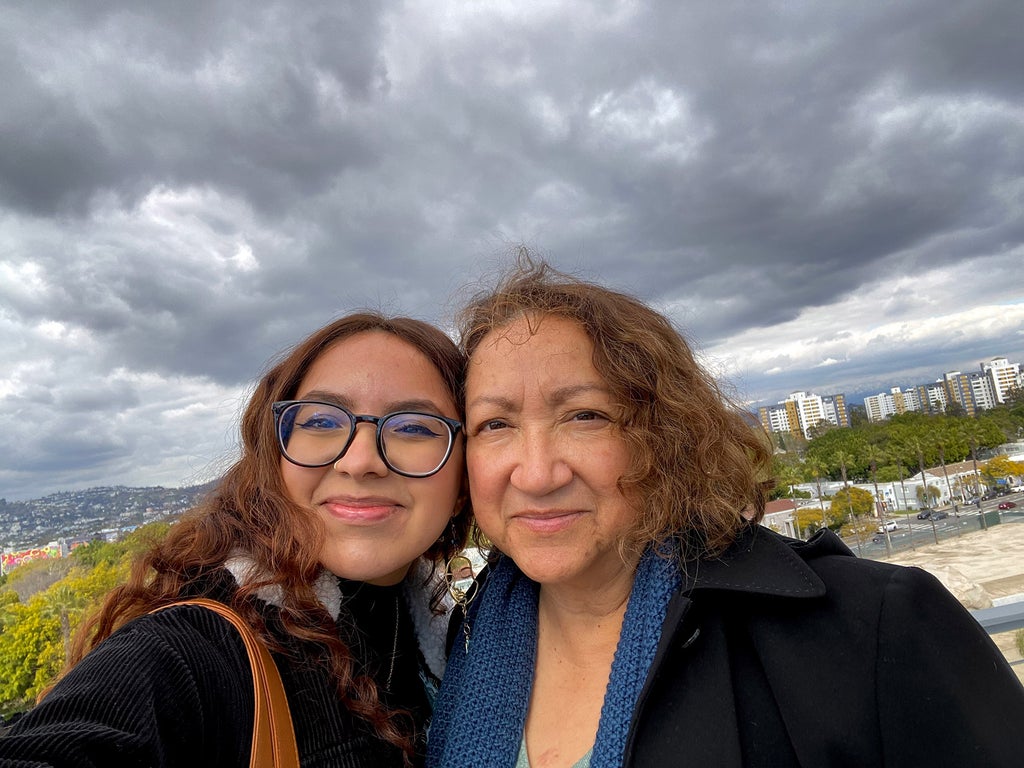I get unparalleled satisfaction from Ajax, my clean white bathroom sink. I feel a sense of accomplishment when I use my partner’s custom glass cleaning solution on the mirror, resulting in a streak free surface. Forget about an annual spring cleaning. Decluttering my room – ridding it of dust, disorganization and chaos – is the perfect way to end my week. Without this routine, I feel restless at night, unproductive and cranky.
After years of living away from home, I’ve come to realize that my need to inhabit a neat space is a direct response—even a rejection—of how I was raised. Left to their own devices, neither of my parents, but especially my mom, were very good at organization. My mom tends to keep anything that has sentimental value: my baby’s clothes, toys, drawings, report cards and yearbooks.
She also has trouble letting go of items that have no meaning to her: shoes she’s never worn, boxes of work papers and files that no longer serve a purpose, photo albums she hasn’t perused in years, and food that’s passed its expiration date their. Even if it benefits her, she hates throwing things away, held back by the remote possibility that we’ll need it again someday and regret getting rid of it.
“After years of living away from home, I’ve come to realize that my need to inhabit an orderly space is a direct response—even a rejection—of how I was raised.”
Sofia Aguilar
Sometimes, overwhelmed by the sheer volume of things, she would have me declutter certain areas of the house, but she had trouble relinquishing control. Once, when I accidentally threw away a plastic bag of tufts of hair, she had me dig through the trash—by then filled with old Q-tips, tissues, and bottles—to fish out the ponytail. The bag kept her tresses from her first haircut. She has kept this hair for decades, carrying it from her childhood to the home she now shares with my dad.
I grew up constantly surrounded by clutter. While my mom, dad and I were close, there was no room for us and it affected us emotionally. We were stressed, tense and exhausted. We even stopped having parties to prevent the rest of the family from openly criticizing my mom for what they described as hoarding. Young and impressionable, I joined in, nagging my mom about her piles. I wanted to shame her into changing. I thought I was helping her.

At that point, I couldn’t see the truth: My father grew up in a financially unstable household, and my mom had an emotionally distant mother. When they found themselves in a situation where they could buy, gather and commit to things without consequence, they lacked the skills to manage their possessions. I wasn’t much help either. I left my dirty dishes in the sink and refused to sweep and mop the common areas. But I couldn’t help it, feeling that if I helped clean up, she wouldn’t like the way I did it, or I’d accidentally throw something away and get into trouble again.
I felt out of control in the rest of my house. My bedroom, however, was mine. When I hit puberty, I decided to turn my room into a model of cleanliness. For fun, I watched YouTube videos and learned how to organize everything from a pencil case to a kitchen cabinet. While other kids went to the movies with friends on the weekends, I was at home sorting through my DVDs and organizing my library. Later in college, I was the roommate who scrubbed the bathroom tiles and threw the old leftovers out of the fridge. Afraid that I would become like my mom, with a house full of stuff, I was obsessed with keeping my spaces tidy.
“I grew up constantly surrounded by clutter. “While my mum, dad and I were close, there was no room for us and it affected us emotionally.”
SOFÍA AGUILAR
It wasn’t until two years ago that I started seeing things differently. I’m not sure if it was because my mom started renovating her house and doing work to make it beautiful or if it was just that I was growing up. But one day when I was visiting, I went into the garage, arguably the worst part of the house off-limits to visitors, and found my old American Girl dolls on a shelf, still in their boxes, dusty but in perfect condition. In that moment, instead of being disappointed, I was grateful that this huge part of my childhood had never been thrown away. For all my clinginess, she had kept these things because they had once been important to me, almost as if she knew that one day they would become so again.
Sure, there were some things we could live without. And yes, we could do a better job of fighting our materialistic consumption. But my mom, I know now, was never really a hoarder. He is someone who has a deep, emotional reverence for the past, who appreciates the little things in life that many of us find easy to leave behind.

In many ways, I see her as an archivist, documentarian, keeper of our family history, a storyteller who remembers every story and memory of any item or photo in her collection, from a rainbow poncho I wore every day in first grade to every numbered birthday candle that has been lit on my cakes since I was 1 year old. Sometimes, she still pulls out that bag of candles and reminisces about how fast and how much I’ve grown and I’m thankful that there’s someone to always remember.
“In many ways, I see her as an archivist, a documentarian, a keeper of our family history, a storyteller who remembers every story and memory of any object or photograph she has in her collection.”
SOFÍA AGUILAR
Because of her, I learned that there are some things worth keeping for the sake of record and memory, not just for our family now but for all the generations that will come after us, especially in a time when physical means are fading.

While I may always be messy, I’m learning to be okay with a little clutter and gathering clothes, craft supplies, and everything else in between that matters to me. I print photos instead of storing them exclusively on my phone, I put my letters and notebooks in a box, I keep books I know I will never read in the hope that someday I can give my future family something of me to keep .
I do this because our lives are worth remembering. Because we have earned the right to leave a mark on the earth. And because, despite all that, my mom might actually be the best person I could ever imagine being.
Do you like what you see? How about something more R29, here?
